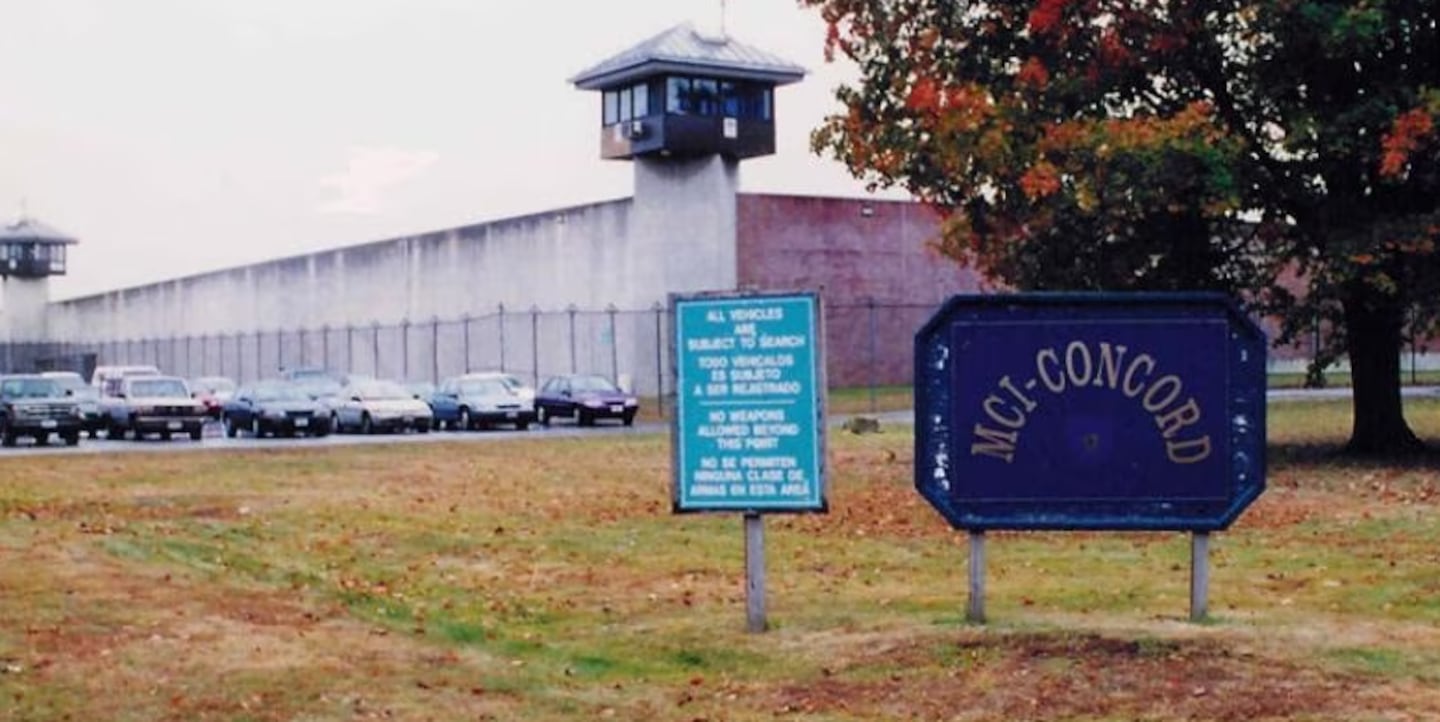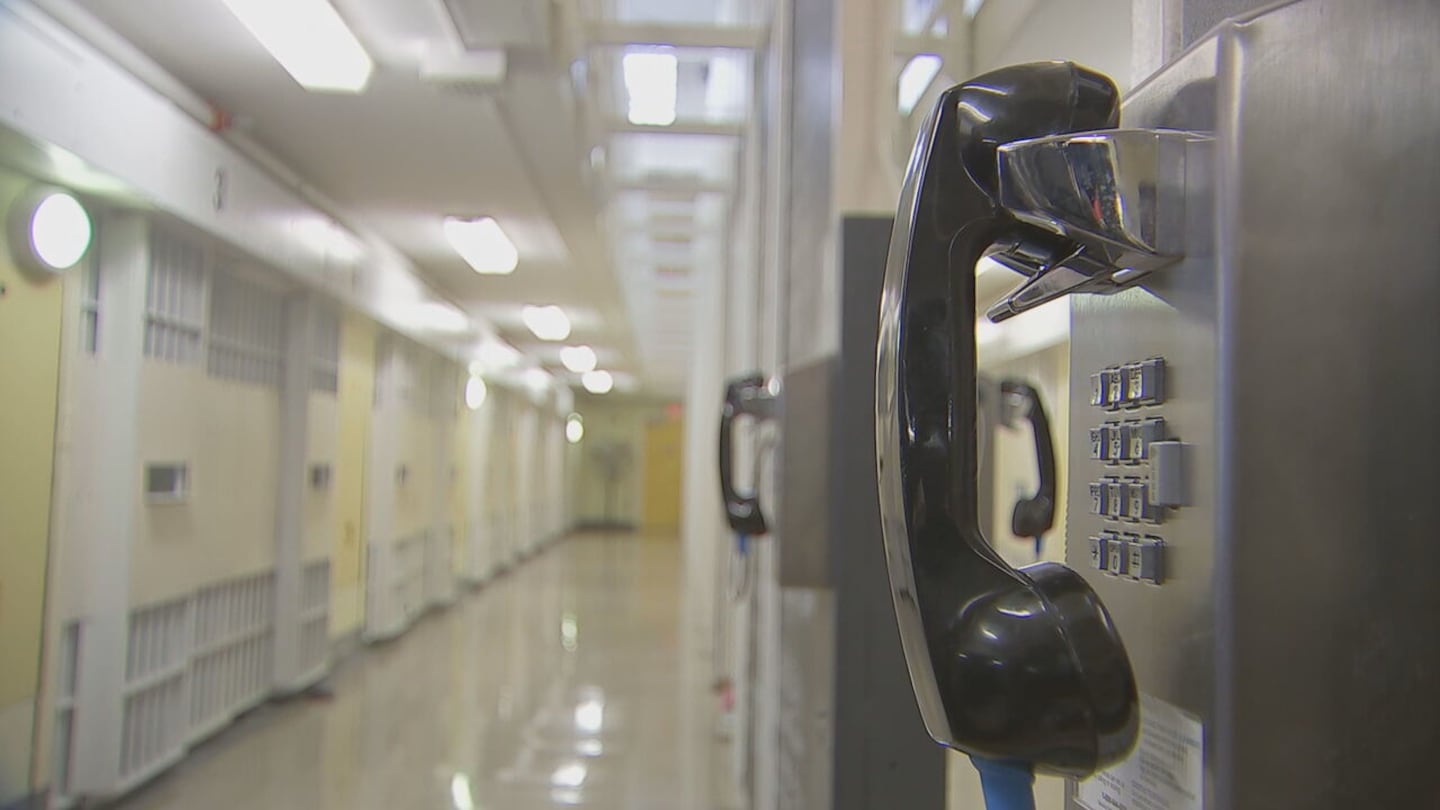CONCORD, Mass. — State officials are closing MCI-Concord prison, which is the oldest men’s prison in the state and the only Massachusetts prison unit dedicated to young fathers.
Officials on Wednesday cited the prison’s aging infrastructure and the declining number of incarcerated people in state prisons as some reasons for the closure. MCI-Concord, a medium-security men’s prison, first opened in 1878.
MCI-Concord currently operates at 50 percent capacity with an incarcerated population of approximately 300, state officials said. MCI-Concord prisoners will complete a reclassification process in the coming months and be transferred to another facility.
The process of transferring correctional officers and prisoners to other facilities is expected to be completed by summer of 2024, officials said.
“Amid the state’s lowest prison population in 35 years, this action reflects the Department’s ongoing efforts to enhance operational efficiency, advance cost-saving solutions, and deepen investments in programming and services,” the Massachusetts Department of Correction said in a statement Wednesday.
The closure “will result in substantial savings” in the Fiscal Year 2025 budget, “including nearly $16 million in operating costs and negating the need for $190 million in capital projects for decarbonization, cooling, and deferred maintenance at the nearly 150-year-old facility,” the statement said.
In the statement, officials said MCI-Concord’s “aging infrastructure has become too costly to maintain and requires significant investments.”
“The strategic decision to end operations at MCI-Concord and relocate its staff and population is based on a thorough assessment of decreased housing needs and the aging facility’s high maintenance costs,” the statement said. “Furthermore, this proposal allows the Department to dispose of the property, making it available for non-correctional purposes and potential redevelopment to the benefit of the surrounding community.”
Department of Correction Commissioner Carol Mici said in a statement, “This proposal underscores the Department’s commitment to responsible stewardship of taxpayer resources while ensuring the fulfillment of our rehabilitative mission. The strategic consolidation of resources eliminates redundancies and empowers us to enhance efficiency and ensure amore effective and impactful correctional system for our incarcerated population, the people who work there, and the community.”
Strategically consolidating Department of Correction resources “makes financial sense and enables the Department to build upon the proven, evidence-based rehabilitative programs that support successful reentry and improve outcomes,” Public Safety and Security Secretary Terrence Reidy said in a statement. “I commend Commissioner Mici and her leadership team for their continued commitment to enhancing operations while delivering effective services to those in their care.”
In recent years, MCI-Concord has offered several programs focused on rehabilitation, officials said. These include the Building Responsible Adults Through Validation and Education (BRAVE) Unit for emerging adults and educational opportunities to complete advanced studies at Tufts University.
These programs will continue to be operational, and the Department of Correction “is developing plans to transition these programs to other comparable facilities in the system,” officials said.
Once the MCI-Concord closure is complete, the property will be made available for potential redevelopment, officials said.
“Massachusetts has long been a leader in reducing incarceration,” officials said in their statement.
Recent data from the Vera Institute show that the rate of incarceration in Massachusetts is 122% lower than the national rate, state officials said.
“Reports from the Vera Institute for Justice found that Massachusetts’ incarceration rate is consistently the lowest in the nation, decreasing nearly 5,000 over the past decade, resulting in a record low of nearly 6,000 incarcerated people,” state officials said.
State Sen. Jamie Eldridge praised the decision to close MCI-Concord in a statement on Wednesday.
“I am deeply encouraged that the Healey-Driscoll administration has decided to close MCI-Concord prison,” Eldridge said. “The facility, opened in 1878, is the oldest operating men’s prison in Massachusetts. Given the declining number of incarcerated people in state prisons, the challenges of providing modern education, programming and re-entry support to incarcerated people in aging buildings, and the state’s fiscal challenges, this is a common sense decision that strikes yet another blow in the criminal justice reform movement to end mass incarceration. In the 21st century, we must continue to overhaul our criminal justice system in a manner that creates more alternatives in holding people accountable for committing crimes than just incarceration, and repairing the harm to victims of crimes.”
“Among the highest Executive Branch priorities for the Criminal Justice Reform Caucus has been the closure of correction facilities. I was pleased last year that the Department of Correction (DOC) closed MCI-Cedar Junction (Walpole) prison, saving approximately $15 million a year in operating costs,” Eldridge said. “The planned closure of MCI-Concord will likely save about the same amount of money, on top of avoiding new capital investments in the oldest men’s prison in Massachusetts.”
Eldridge urged state officials to “consider using this anticipated savings for the purposes of ‘justice reinvestment,’ investing taxpayer dollars in education, programming and re-entry services for incarcerated people and returning citizens, and in communities across Massachusetts that have often been unjustly targeted by mass incarceration and the War on Drugs.”
Eldridge added: “On a personal note, as someone who grew up in Acton, driving through the Concord Rotary past MCI-Concord on Route 2, looking out on the prison reminded me of the injustices and inequalities that exist in Massachusetts, and the need for all concerned residents, elected officials, responsible parties of crimes, and state agencies and institutions to work together to create a more fair, just and equal Commonwealth.”
Under Massachusetts law, closing a correctional facility and disposing of the property requires the approval of the state legislature, officials said.
This is a developing story. Check back for updates as more information becomes available.
Download the FREE Boston 25 News app for breaking news alerts.
Follow Boston 25 News on Facebook and Twitter. | Watch Boston 25 News NOW
©2024 Cox Media Group









